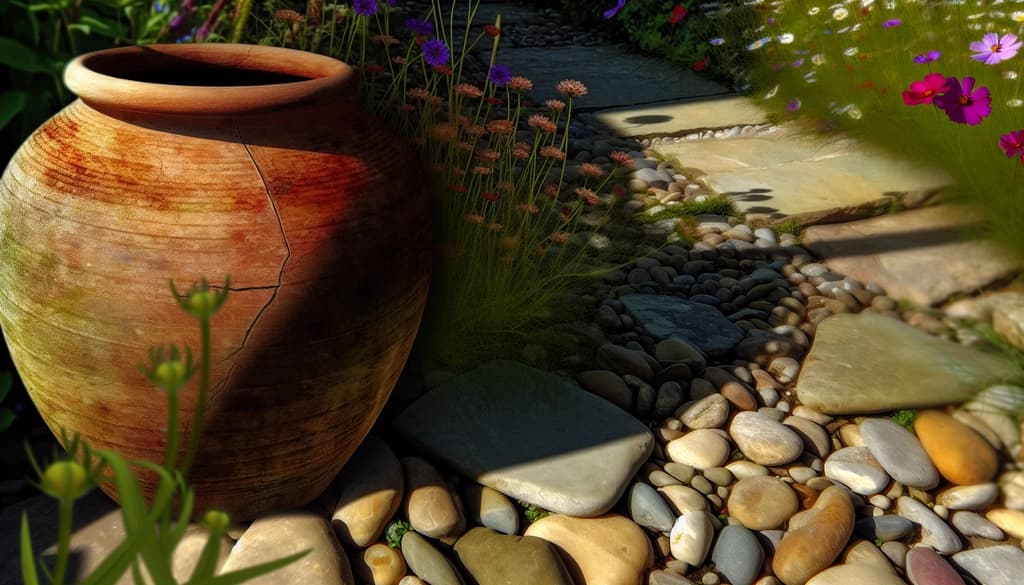The Story of the Cracked Pot: Finding Worth in Our Flaws

A Simple Vessel, a Silent Lesson
Sometimes a story slips quietly into memory, asking only to be heard. Among the many spiritual stories with meaning, the story of the cracked pot arrives with no sharp teaching — just a gentle invitation to witness what is already here.
In the telling, a water bearer carries two pots each day along a winding path. One pot is perfect. The other, marked by a long crack, leaks drops as they walk. For years, the flawless pot delivers its full measure; the cracked pot, always half-empty.
The cracked pot aches with shame. One day it speaks — soft, breaking. "I am less. I waste what I should hold."
The water bearer pauses. "Look along your side of the path. Do you see the wildflowers? I planted their seeds for you. Each day, it was your water, quietly falling, that let them bloom."
Leaning In: The Meaning Hiding in an Imperfection
Many parables — the parable of the poisoned arrow, the story of the blind men and elephant — unravel certainty, loosening the grip of easy answers. The cracked pot does something quieter. It doesn’t point to the truth. It lets us notice what has already been nourished by what we thought was broken.
Every flaw draws a line through time — and along it, something tender grows. Flowers, perhaps. Or gentleness, born of self-recognition.
What Is Missed, and What Is Watered
Pause for a moment. Consider the places in you that feel incomplete, less than whole. What might be blooming unnoticed along that path?
- A patience learned in loneliness
- A listening ear shaped by your own longing
- Compassion for others struggling with their own cracks
We spend so much time gazing at what is missing, we rarely see what has been quietly nurtured behind us — petals bright, trembling, scented with the water we imagined had spilled in vain.
A Circle of Stories, Shared Imperfection
Just as the blind men surround the elephant, each touching one uncertain truth, so do our stories surround our lives. Some are tales of poison and haste. Others are gentle acknowledgements of our cracks. All, in the end, are vessels for a kind of seeing made possible only by what is incomplete.
Notice what the water has brought forth. Let the crack be, for a breath, the thing you honor most.
